PRAISE FOR Best European Fiction
Best European Fiction 2010 offers an appealingly diverse look at the Continents fiction scene.
THE NEW YORK TIMES
The work is vibrant, varied, sometimes downright odd. As [Zadie] Smith says [in her preface]: I was educated in a largely Anglo-American library, and it is sometimes dull to stare at the same four walls all day. Heres the antidote.
THE FINANCIAL TIMES
With the new anthology Best European Fiction 2010 our literary world just got wider.
TIME MAGAZINE
The collections diverse range of styles includes more experimental works than a typical American anthology might[Mr. Hemons] only criteria were to include the best works from as many countries as possible.
THE WALL STREET JOURNAL
This is a precious opportunity to understand more deeply the obsessions, hopes and fears of each nations literary psychea sort of international show-and-tell of the soul.
THE GUARDIAN
Dalkey has published an anthology of short fiction by European writers, and the result, Best European Fiction 2010, is one of the most remarkable collections Ive readvital, fascinating, and even more comprehensive than I would have thought possible.
BOOKSLUT
Heres hoping to many more years of impossibly ambitious Best European Fiction anthologies.
POPMATTERS
Readers for whom the expression foreign literature means the work of Canadas Alice Munro stand to have their eyes opened wide and their reading exposure exploded as they encounter works from places such as Croatia, Bulgaria, and Macedonia (and, yes, from more familiar terrain, such as Spain, the UK, and Russia).
BOOKLIST STARRED REVIEW
[W]e can be thankful to have so many talented new voices to discover.
LIBRARY JOURNAL
If Dalkey can keep it up, this could easily become the most important annual literary anthology in America. Which is ironic.
CHICAGO NEW CITY
[W]hat the reader takes from them are not only the usual pleasures of fictionthe twists and turns of plot, chance to inhabit other lives, other ways of beingbut new ways of thinking about how to tell a story.
CHRISTOPHER MERRILL, PRIS THE WORLD HOLIDAY PICK
The book tilts toward unconventional storytelling techniques. And while weve heard complaints about this beforewhy only translate the most difficult work coming out of Europe?it makes sense here. The book isnt testing the boundaries, its opening them up.
TIME OUT CHICAGO
Editor Aleksandar Hemon declares in his preface that at the heart of this compilation is the non-negotiable need for communication with the world, wherever it may be, and asserts that ongoing translation is crucial to this process. The English-language reading world, wherever it may be, is grateful.
BELIEVER
Translations account for less than five percent of the literature published in the United States. This is the first anthology of its kind, and after reading it you may be so furious that such quality work has been kept from you that youll repeat that stat to anyone wholl listen.
PASTE
BEST EUROPEAN FICTION 2011
BEST EUROPEAN FICTION 2011
EDITED AND WITH AN INTRODUCTION BY ALEKSANDAR HEMON
PREFACE BY COLUM MCCANN
DALKEY ARCHIVE PRESS
CHAMPAIGN AND LONDON

Copyright 2010 by Dalkey Archive Press
Introduction copyright 2010 by Aleksandar Hemon
Preface copyright 2010 by Colum McCann
All rights reserved
Please see Rights and Permissions on Rights and Permissions for individual credits
ISBN : 978-1-56478-667-8
www.dalkeyarchive.com
Funded in part by grants from Arts
Council England; the Arts Council (Ireland); the Illinois Arts Council, a state agency; and with support from the University of Illinois at Urbana-Champaign
Please see Acknowledgments on Acknowledgments for additional information on the support received for this volume
Dalkey Archive Press would like to thank roving editor
Roman Simi for his invaluable assistance in assembling
for his invaluable assistance in assembling
this second volume of Best European Fiction

Contents
A Refusal to be Bordered
THE AMERICA OF EUROPE
The writers proper destiny is to know where he or she comes from, confront his conscience, draw the borderline, then step beyond it. One of the deepest conundrums, and perhaps beauties, of our time is that so many of us do not know where we come from.
The concept of the global writer is a relatively new one. There has always been the Sri Lankan writer, for example, or the English writer, or the Canadian, or indeed the American. It is only in recent years that a writer like Michael Ondaatjeborn in Sri Lanka, educated in England, a Canadian citizen who wrote his first novel about a black American jazz musicianwas able to comfortably fit the phrase international mongrel into the discourse. We are increasingly familiar with our hybrid sense of nationality: that wherever we are can be coupled with wherever we once were . Writers can carry the weight of a couple of extra countries: if you put the original brick in your pocket, you can still swim the river. Were not shattered by our multiple hyphenations. We can be Irish and Argentinean, or French and Australian, or Chinese and Paraguayan, or perhaps even all of them at once.
The problem comes if youre European. What exactly is a European writer? Is there a contained geography or an accepted history in which she or he exists? Is there some sort of European voice that justifies an anthology? What does it mean, apart from the very nature of fracture, to have a literature of Europe?
Everyone knows what Europe once wasthe very word opens up the charnel houses of the twentieth centurybut we have an imperfect idea of what Europe currently is . It operates as an umbrella word, of course, but the umbrellas are inevitably carried around even when its not threatening to rain. Theres Sweden, theres Turkey, theres Macedonia. Theres France, theres Germany, theres Spain. Theres Luxembourg and Andorra and Vatican City and Catalonia. Some European organisationsits football authorities for instanceinclude Kazakhstan and Israel. (Imagine the Israelis swapping soccer shirts with the Kazakhs at a tournament, say in Sarajevoperhaps Kafka could deal with the strange human algebra of it all.) And then theres Ireland and England, Serbia and Croatia, Georgia and Russia: long wars, short memories.
Try throwing all of these countries into the single factory chute of identity. It seems impossible, yet it has happened, and it continues to happen: the word European has been around a while and it is most certainly here to stay. The difficulty, for the writer at least, is knowing exactly where it begins and ends.
Theres nothing new about European identity crises, of course, fictional or otherwise. Way back in 1904, Leopold Bloom, an Irish-Hungarian Jew, sat in Barney Kiernans pub on Little Britain Street in Dublin, contemplating the idea that a nation is the same people living in the same place. He later revises his answer to those also living in different places. A parliamentary answer, and he gets a biscuit tin thrown at his head for his troubles. The idea is that a nation is a sort of intimate and fluctuating everywhere. Its impossible, of course, to have a nation without literature. The corresponding corollary is that its impossible to have a literature without a nation. On the simplest level it has to come from somewhere.

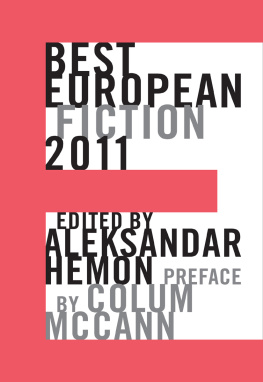
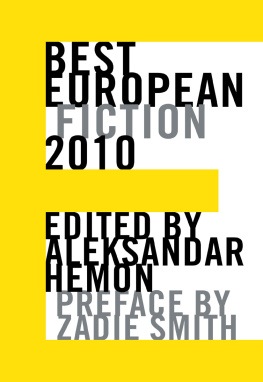
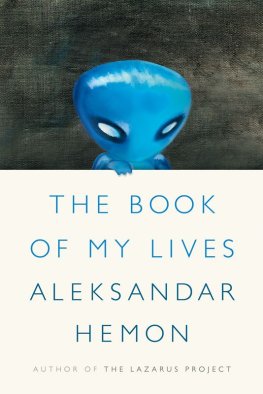
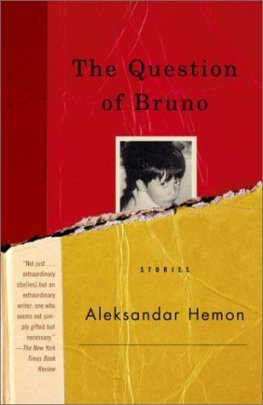
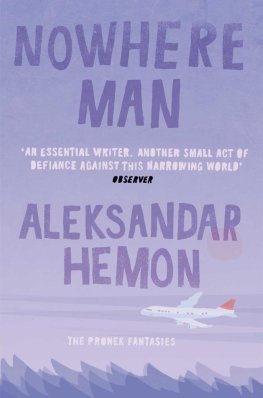
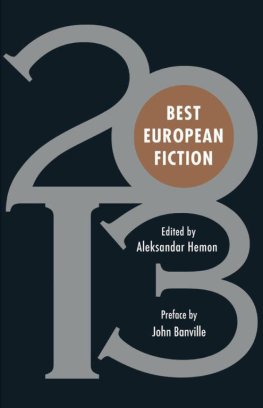
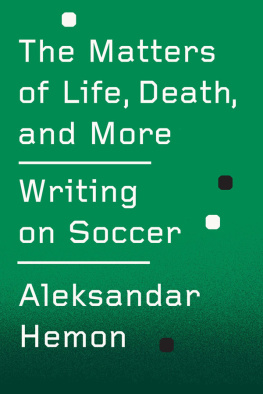

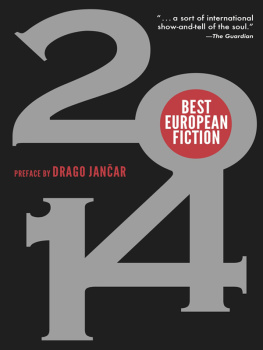
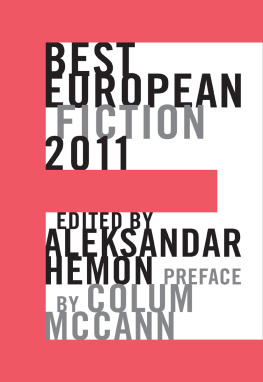
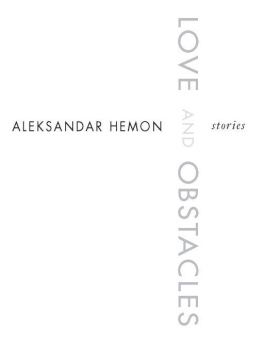

 for his invaluable assistance in assembling
for his invaluable assistance in assembling